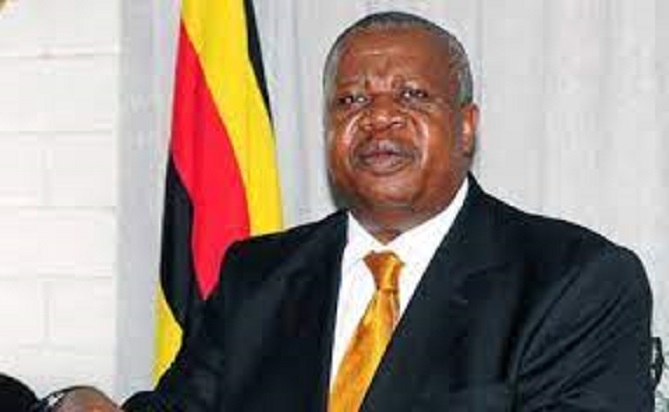The uncertainty surrounding power distributor, Umeme Limited’s license renewal has badly affected the stock exchange, the Uganda Government has revealed.
According to the Background to the Budget for Financial Year 2019/20 released by Ministry of Finance, Planning and Economic Development, equity turnover at Uganda Securities Exchange (USE) declined by 73 percent to Shs17.5 billion in 2018/19 compared to Shs64.8 billion recorded in a similar period in the previous fiscal year. Average turnover per trading day fell by 73 percent to Shs95.0 million from Shs364.0 million previously.
“The dip in market activity can be attributed to among other things, a huge drop in demand from foreign investors due to uncertainty over UMEME,” the Background to the Budget reads in part.
It adds: “Additionally, investors also shifted to government securities following the uncertainty in the equities market.
In the FY 2018/2019, the capital markets industry witnessed one primary offer in the equity market; the Initial Public Offering for Cipla Quality Chemical Industries (CiplaQCIL) opened on 14th August 2018 and closed on 28th August 2018. The drug manufacturer offered 657.2 million shares at a price of Shs256.5 per share. The offer subscription level stood at 98.8 percent, raising a total of Shs166.6 billion.
The company was listed on the USE on September 17, 2018 and the counter closed the day at a price of Shs262 and market capitalization of Shs956.8 billion.
Domestic market capitalization (representing the value of all locally listed companies) grew by 11 percent to Shs5.0 trillion from Shs4.3 trillion reported in the previous FY due to the listing of CiplaQCIL and the increase in share price of Bank of Baroda.
The USE Local Counter Index that tracks share price movements of domestic counters closed at 376.5 points, 5 percent lower from the previous close of 395.0 points.
The All Share Index (ALSI) also closed 21 percent lower than the previous year.
“In the coming FY, activity at the USE is expected to recover driven by among other things, continued economic growth,” the Background to the Budget report reads in part.
New Concessional Deal In Offing
Speaking on the sidelines of the Umeme’s 6th Annual General Meeting in May, Patrick Bitature, the Chairman, Board of Directors of Umeme revealed that the power distributor is optimistic of getting a new concessional deal by end of this year.
He noted that negotiations with government are set to start.
Bitature noted that the company enjoyed a reasonably good year financially in 2018 and this was further spiced up by a decision by the Ministry of Energy to embark on new negotiations.
He explained that the reason behind the early negotiations is because the company intends to secure funding on a long term tenure when the price is low globally and ensure that power tariffs can be brought down.
“Many people were concerned about the concession and the government has shown a good heart; they have invited us to renegotiate our concession much as we still have six years ahead. We haven’t yet reached the end of our concession but it is in both parties’ interest to begin renegotiating our concession now because we have Karuma power that is eminent, Isimba is now switched on and we need to evacuate this power which means we need long term funding if we borrow money for five years,” Bitature said.
Responding to questions on how long the negotiations are likely to take, Bitature was non-committal on the time but only revealed that the two parties are working to have a deal sealed by the end of 2019.
The pronouncement comes at a time when President Yoweri Museveni in his 12th March 2018 letter warned the Ministry of Energy against renewing Umeme’s concession arguing that the country should be looking for cheaper ways of modernising and expanding the distribution and distribution lines.
Umeme’s power distribution concession is due to expire in March 2025 having started in March 2005 when the South African company took over electricity distribution in Uganda and the policy has a provision for negotiations into a concessionaire to start three years to the expiry of its concession and apply for a renewal of the concession.
The President wrote: “I am now directing you to furnish me with the explanations on all these matters. In the meantime, there should be no question of renewing Umeme’s concession. By copy of this letter, I am also directing the Inspector General of Government to look into these issues.”
However, when the Minister of Finance, Matia Kasaija was asked by Legislators on how far Government had prepared for Umeme’s exit, Kasaija said that Government had not yet taken a firm decision on the Umeme debacle and that the biggest task was finding a company with huge financial muscles to put up investments to increase power distribution.
The President’s decision to cancel Umeme’s concession was informed by the 2017 audit report by the Auditor General, John Muwanga that indicated that Government lost approximately Shs129bn to Umeme in depreciation and return on asset since Government entered into contract with the electricity company.
The report revealed that the depreciation cost and return on investment shot to Shs11.1bn from 2004 to 2015, with the loss having increased to Shs13.6bn after 2015, bringing the total loss to Shs129bn.
Umeme seems to have put the loss making days behind them with Bitature informing journalists that the company had a good year financially with the Company’s financial performance indicating that the company recorded profits of Shs133bn in 2018, up from Shs36bn recorded in 2017.






